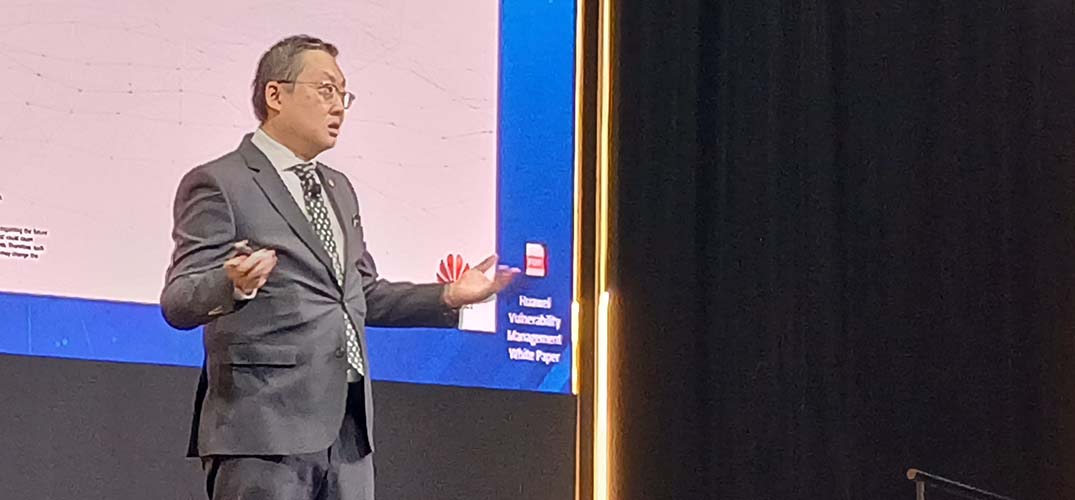Kathy Gibson reports from Gitex – New technologies like artificial intelligence pose a cybersecurity threat – but will also be key to driving developments in data and security.
Aloysius Cheang, chief security officer: Middle East and Central Asian Region at Huawei, points out that data and security is critical. “Data reshapes global politics and economics – it’s security is crucial to this transformation,” he says.
As a pivotal asset, data can drive significant social and economic advantages. “And data security is essential to unlock its value,” Cheang says.
We can preserve the value of data through controlled circulation and usage. “But it is easily transportable and , replicable and renewable – which present unique challenges to cybersecurity professionals,”
Cheang points out that regulations like GDPR protects parts of the data, but not the true value of it.
“And, in the past we have seen many illegal data practices for consolidating power and even threatening national security.”
This gives rise to the need for safeguarding national sovereignty of data, he adds.
“How can we prevent not only our private data from being leaked, but our national data?”
We need to address this problem at the root, Cheang says, and many countries have developed new laws regulating data security and use.
He believes that future-ready data security governance must be along with data development and utilisation – not only again the traditional breaches we see today, but also new security risks.
In addition to the Internet and emerging industries, future-ready data governance should also cover traditional ones digitally transforming with ICT technologies, services, and solutions.
Generative artificial intelligence (GenAI) opens up a whole new set of challenges, with users often trusting automated systems with a tremendous amount of personal and possibly sensitive information.
“Power without control is not good enough,” Cheang says. “We need to be able to trust the AI – that it will do what we expect it to do.”
And people need to be in control of the AI, Cheang believes.
Fake news is where unlawful data sharing becomes a catalyst for populism and political divide, he adds. “We need to share data in a way that it is controlled and not being used in a harmful way.”
But new technologies, like ChatGPT, can be a way for people to invent data, or share data unlawfully.
In the future, we need to embrace AI for growth and security governance – and cybersecurity has a key role to play in this transformation
“Without cybersecurity you are unable to ensure productive use of this technology.”
Indeed, Cheang says there is a direct correlation between data security and organisation productivity.
Security needs to focus on the lowest common denominator – securing the data itself regardless of what state it is in. “Whether it is AI or any other environment, you need to put a force shield around the data, preventing it from being used in a way that is negative.
“You need to build a chain of custody for date, to ensure data provenance.”

